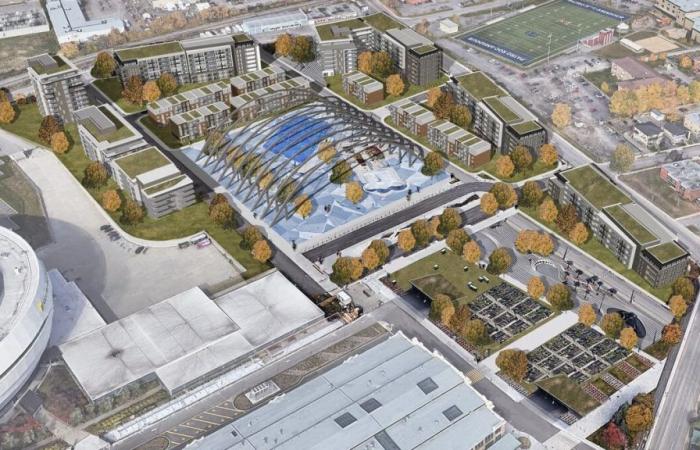At the end of public consultations on the future of the Colisée sector, the City of Quebec is studying the alternative of retaining or not the old building, which Mayor Bruno Marchand would prefer to demolish; it will be up to the planning commission to decide.
“To decide on this possibility, we are going to see the town planning and conservation commission between now and the holidays to see whether from a heritage point of view it is worth it or not to keep this building,” said indicated in an interview the president of ExpoCité and member of the executive committee responsible for heritage, Mélissa Coulombe-Leduc.
The City of Quebec took stock Thursday of its thinking around the northeast sector of ExpoCité, where the old Colisée is located, now that the consultations have ended. If the citizens had shown their attachment to the old Nordic enclosure, as noted The Journal in April, broader discussions with in particular experts and respondents to an online consultation did not make it possible to “reach a consensus” on whether or not to maintain the building, explains Mme Coulombe-Leduc.
“Not profitable”
In March, Mayor Marchand reaffirmed his desire to demolish the Coliseum because it was “not profitable” and that bringing it up to standard would cost “a crazy price”, but he said he was listening to the results of the consultations, which his office reiterated in May. His political team had presented during the campaign a project for a residential complex on the land, without the Colosseum.
Now that the consultations are over, two scenarios are emerging: maintaining the event function of the place “as an exhibition center and emblematic place of entertainment” or the development of a mixed center “integrating residential and cultural spaces while retaining an event function,” submitted the City.
Heritage arches
For these two options, one question remains: will we keep the emblematic Colosseum? The analysis “will focus in particular on the impact of preserving or not preserving the Colosseum in each option”. This is the issue that the planning commission will have to decide in the coming weeks. Because if the arches of the Coliseum have been recognized as being heritage, the current building “no longer has at all the same heritage value as the original building”, argues Ms. Coulombe-Leduc, since it was enlarged and that its facade has become rectangular. “An irreversible gesture”, according to the City’s heritage experts.
The Marchand administration is not committing to anything at the moment, even in the event of a decision by the commission to preserve the building. “We will cross the bridge when we get to the river. We want to go see the commission to clarify what happens next,” says the advisor, who nevertheless specifies that the commission’s opinions are obligatory.
She emphasizes that the Colosseum is not ideally positioned “to allow for optimal redevelopment” of the site.
Colosseum sector: elements retained from citizen and expert consultations
- A large interior multifunctional space
- Ambitious greening: going from 12% to 25% and more
- Favored active travel
- Outdoor public spaces
- An evolution of parking: multi-storey or underground options
Source: Quebec City
Do you have any information to share with us about this story?
Write to us at or call us directly at 1 800-63SCOOP.






